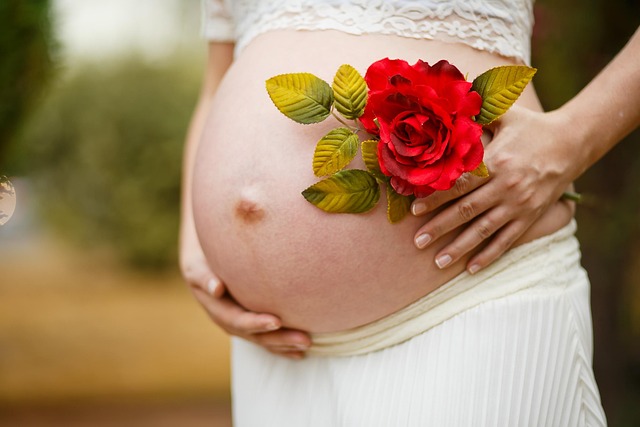If you have endometriosis and are thinking about starting a family, you’re not alone. This condition affects millions of people with reproductive systems around the globe. Endometriosis occurs when uterine-like tissue grows outside the uterus, leading to various symptoms and potential fertility issues. If you’ve been diagnosed or suspect you might have endometriosis, it’s crucial to understand the condition, how it impacts fertility, and the available treatment options. Let’s explore the connection between endometriosis and fertility while addressing common questions for those considering conception.
Understanding Endometriosis and Its Impact on Fertility
Endometriosis is a multifaceted condition that can affect fertility in various ways. While it can lead to infertility for some, others may not experience any fertility issues at all. To gain insight into the potential challenges of living with this chronic condition, we’ll answer some frequently asked questions about endometriosis, its symptoms, effects on fertility, and treatment options.
What is Endometriosis?
Endometriosis is a medical condition affecting individuals with uteruses, manifesting anywhere from puberty to later stages of life. It occurs when endometrial-like tissue develops outside the uterus, including on the ovaries, fallopian tubes, and even in the chest cavity! During menstruation, this extra tissue can become inflamed, causing pain, swelling, and sometimes scar tissue. Endometriosis can complicate pregnancy by impacting the ovaries and egg production, as well as altering the reproductive structure.
Symptoms of Endometriosis
Symptoms of endometriosis vary widely among individuals and can also change over time. Common indicators include:
- Painful periods: Severe cramping and pelvic pain during menstruation.
- Chronic pelvic pain: Ongoing pain in the pelvic area, not limited to menstrual cycles.
- Painful intercourse: Discomfort or pain during or after sex.
- Heavy menstrual bleeding: Abnormally heavy or prolonged periods.
- Fatigue: Persistent exhaustion without a clear cause.
- Digestive issues: Symptoms like bloating, constipation, or diarrhea, often linked to the menstrual cycle.
- Urinary problems: Difficulties or pain when urinating, especially during menstruation.
- Infertility: Difficulty conceiving can lead individuals to seek medical help.
It’s important to note that symptom severity can differ greatly, and not everyone will experience all of these symptoms. If you suspect you have endometriosis, consult with your healthcare provider for a proper diagnosis and treatment plan.
How Does Endometriosis Affect Fertility?
Endometriosis can impede fertility in various ways. Estimates suggest that 33%-50% of those with endometriosis may face fertility challenges. Here are some ways it can negatively impact fertility:
- Distorted pelvic anatomy: Adhesions, scar tissue, and ovarian cysts can affect the reproductive organs, damaging eggs or blocking fertilization pathways.
- Hormonal imbalances: The abnormal growth of endometrial tissue can disrupt hormonal balance, impacting ovarian function.
- Inflammation and immune response: Endometriosis triggers an inflammatory response, which can interfere with fertilization or embryo implantation.
What Are the Chances of Getting Pregnant With Endometriosis?
Good news! While endometriosis can create hurdles in trying to conceive, it doesn’t make pregnancy impossible. According to the American Society for Reproductive Medicine, 30% to 50% of individuals with endometriosis may experience infertility. Factors influencing your chances of getting pregnant include:
- Severity and location of the disease: The impact of endometriosis can vary based on the extent and location of the tissue.
- Age: Age plays a significant role in fertility, and the presence of endometriosis may exacerbate age-related fertility decline.
- Coexisting factors: Other issues, like male factor infertility or conditions such as polycystic ovary syndrome (PCOS), can also affect fertility outcomes.
How is Endometriosis Diagnosed?
If you suspect you have endometriosis or are experiencing related symptoms, it’s essential to seek advice from a healthcare professional. Diagnosis may involve:
- Detailed medical history: Your provider will ask about past health issues, surgeries, and current symptoms.
- Pelvic examination: This will include both internal and external exams.
- Imaging tests: Ultrasound or MRI may be ordered for further evaluation.
- Laparoscopy: A minimally invasive surgical procedure often used for definitive diagnosis and treatment.
What Are the Treatment Options for Endometriosis?
Treatment primarily aims to alleviate symptoms and manage disease progression. Since endometriosis is a chronic condition, management may involve several approaches based on the severity of the disease, including:
- Hormonal therapies: Combined oral contraceptives or progestins can help control symptoms and reduce the growth of endometrial tissue.
- Pain management: Over-the-counter or prescribed medications can provide relief from pelvic pain.
- Surgical therapies: Laparoscopic excision removes endometrial implants while preserving healthy tissue.
Tips for Getting Pregnant With Endometriosis
If you’ve been diagnosed with endometriosis and are considering conception, consult your healthcare team about your condition’s severity and any interventions that may enhance your chances of conceiving. Lifestyle changes can also positively impact fertility:
- Maintaining a healthy weight: An ideal weight can improve fertility, so focus on balanced nutrition and regular exercise.
- Stress management: Reducing stress through methods like yoga or meditation can help maintain hormonal balance.
For more insights, check out this blog post on our new diaper collection, and learn about the importance of using quality resources such as this guide for pregnancy and home insemination. You can also explore reliable options like this artificial insemination kit to assist in your journey.
In summary, while endometriosis poses unique challenges for those wishing to conceive, many individuals with this condition successfully become pregnant. Understanding your condition, seeking proper medical advice, and making healthy lifestyle choices can significantly enhance your chances of achieving your dreams of parenthood.

